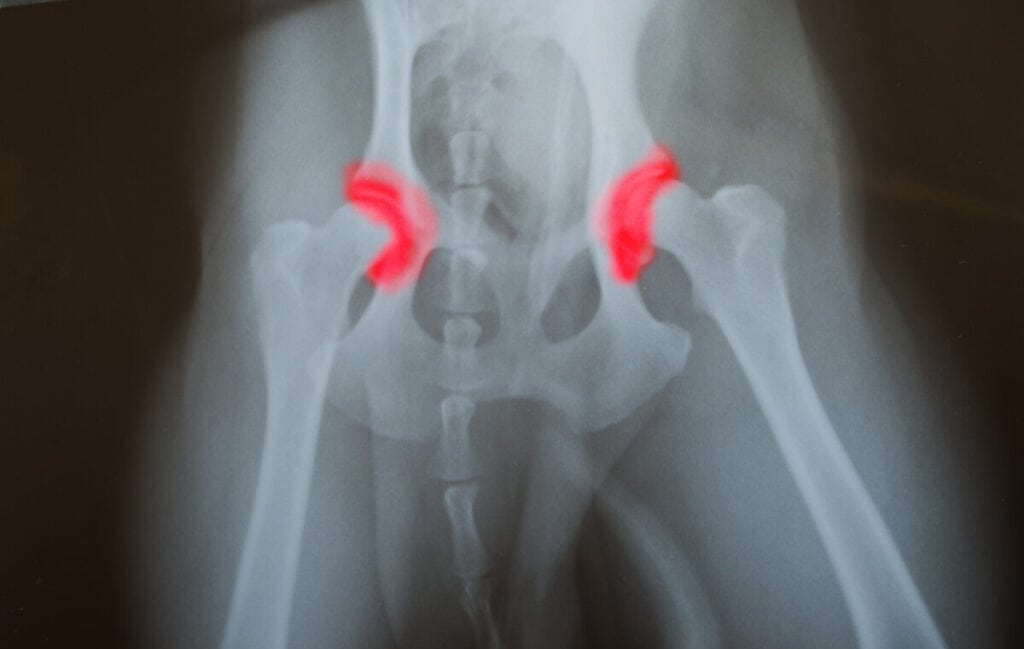Do Labradors Get Sick Often? (Know these signs!)
If you are wanting to know whether or not labradors get sick often, then you have come to the right place. Many breeds are innately inclined to certain diseases and infections, which can be alarming to the owner. However, are labradors one of these breeds, or are they usually healthy?
Labradors do not get sick often and they are regarded as a healthy breed. However, there are health conditions that a Labrador is predisposed to such as obesity, liver issues, vision problems, and hip dysplasia. Many of their health issues can be avoided or treated effectively.
Thankfully, Labradors do not usually get sick or have serious illnesses. However, there are some conditions that Labradors come predisposed to which are worthy of note. To learn more about the health conditions of Labradors, continue reading below to discover additional information about the topic.
How Often Labradors Get Sick
Labradors do not frequently get sick. Most Labradors are very healthy and do not face serious issues that are not caused by old age. However, sometimes a Labrador may develop a genetic or chronic health condition. Because these conditions typically occur unexpectedly, owners should take the time to learn what diseases and conditions to look out for regarding their Labrador.
Genetic Health Conditions
Although Labradors are typically healthy, no breed is unaffected by illness. Even Labradors can develop health conditions. Below is a list of six of the most common genetic health conditions of a Labrador.
Vision Problems

Labradors are at risk for vision problems. One of the most common eye problems that Labradors face is progressive rod-cone degeneration. Labradors with this health condition may first experience night blindness, with the condition further worsening from there.
Eventual blindness is inevitable. However, it occurs gradually. Over a period of time, you may recognize that your Labrador is struggling to see, and eventually it will be unable to see at all. Unfortunately, this disease is not able to be cured or treated effectively. However, there are ways to help your Labrador cope with the loss of vision.
Narcolepsy
Narcolepsy can occur in many breeds, one of which being the Labrador. Narcolepsy impacts the Labrador’s ability to control the sleep-wake cycle, thus resulting in an off-structured circadian rhythm. Signs of narcolepsy are typically present at a young age and continue to worsen until the Labrador is one year old.
If your Labrador has narcolepsy, then it may fall asleep in the middle of an activity and then wake up and return to its activity. This behavior surprises many owners but it is a sure sign of narcolepsy.
Narcolepsy is not innately dangerous. It does not lower the lifespan of the dog. However, it can impair daily function. In addition, it can be dangerous if the dog falls asleep while crossing the street or in any other harmful environment. Because of this, narcolepsy should be treated seriously and the dog should be taken to the vet for treatment as soon as possible.
At this time, there is no cure for narcolepsy. However, medication can be used to lessen the impacts it has on a Labrador. Proper medication can lessen the number of attacks the Labrador faces and how long they last. The Labrador will have narcolepsy its entire life, however, the impacts it has will be much less noticeable if treated.
Obesity

Obesity is common in Labradors. A genetic variation has been identified that helps to explain why many Labradors are obese, or at least overweight. The pro-opiomelanocortin, or POMC gene, can cause obesity and increased appetites in dogs. About 1/4 of Labradors carry one copy of the mutated gene.
For each copy carried, the Labrador is at a higher risk for obesity. This means that about a quarter of Labradors have a genetic disposition for obesity and excessive weight gain, without even taking into account the food they eat, the environment they are in, and the other health conditions they face.
The mutation has currently only been found to impact Labradors.
Hepatitis
Liver problems such as hepatitis are common in Labradors. The inflamed liver that characterizes hepatitis can be a serious disease. Symptoms range in severity, from enhanced thirst to seizures. In some cases, the disease can result in death. However, if caught early on, treatment can prevent the disease from worsening. Although hepatitis cannot be cured, it can be prevented.
Dogs are required to get vaccinated for hepatitis. As long as they receive these vaccines at the correct time, they should not experience the disease. In addition, keeping your Labrador away from infected dogs is vital. If they consume any bodily fluid from an infected dog, then they are at high risk.
Immediate action should be taken if you think your Labrador has hepatitis. Do not hesitate to take your dog to the vet, as the symptoms may begin to appear rapidly. After the Labrador has been diagnosed with hepatitis, they will typically live for three more years.
Hip Dysplasia

Hip dysplasia is common in large breeds, which makes it unsurprising that Labradors are at high risk. Malnutrition, exercise, and obesity can further enhance the impacts of hip dysplasia.
Labradors that are not moving as much as they used to and have decreased activity levels should be looked at for hip dysplasia. These are signs of the condition and it can be very painful for the dog as they move. Medication and lifestyle changes are used to decrease the pain caused by dysplasia.
Diabetes
Labradors can be susceptible to diabetes. Old female Labradors who are not spayed are most at risk. Unfortunately, diabetes cannot be cured. However, there are effective treatments that can help keep it at bay. This includes providing your dog with insulin and making sure lifestyle changes are employed.
Labradors who have diabetes are typically lethargic. If you notice that your Labrador does not have the same upbeat, optimistic personality that they once had, then it may be a cause for concern. However, once treated, Labradors will once again return to their normal state.






